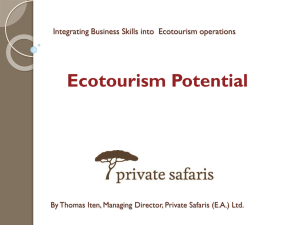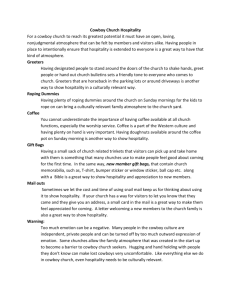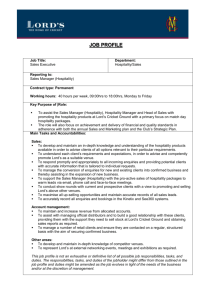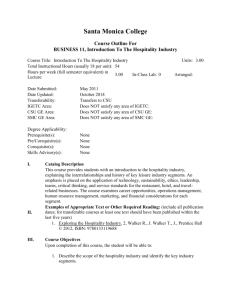File
advertisement
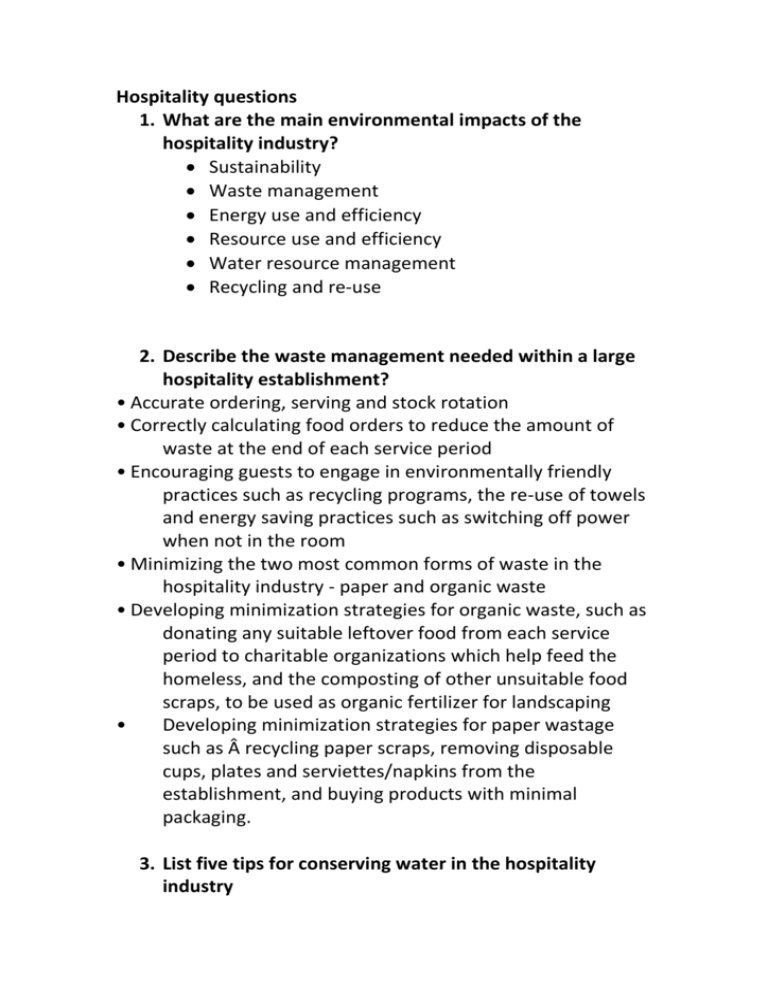
Hospitality questions 1. What are the main environmental impacts of the hospitality industry? Sustainability Waste management Energy use and efficiency Resource use and efficiency Water resource management Recycling and re-use 2. Describe the waste management needed within a large hospitality establishment? • Accurate ordering, serving and stock rotation • Correctly calculating food orders to reduce the amount of waste at the end of each service period • Encouraging guests to engage in environmentally friendly practices such as recycling programs, the re-use of towels and energy saving practices such as switching off power when not in the room • Minimizing the two most common forms of waste in the hospitality industry - paper and organic waste • Developing minimization strategies for organic waste, such as donating any suitable leftover food from each service period to charitable organizations which help feed the homeless, and the composting of other unsuitable food scraps, to be used as organic fertilizer for landscaping • Developing minimization strategies for paper wastage such as  recycling paper scraps, removing disposable cups, plates and serviettes/napkins from the establishment, and buying products with minimal packaging. 3. List five tips for conserving water in the hospitality industry • Install efficient pre-rinse spray valves. • Replace boiler steamers with connectionless steamers. • Install water-efficient dishwashers that use less than 1 gallon per rinse cycle. • Use the dry heat setting on combination ovens. Replace water-cooled ice machines with air-cooled units. 4.List five tips for reducing waste in the hospitality industry. 5. How is ecotourism important for the environment? Ecotourism is an important tool for raising awareness about environmental conservation and fostering connections between cultures that would otherwise never interact. Ecotourism also provides communities with viable income sources without devastating the natural resources of the communities. 6. Describe environmental sustainability Environmental sustainability involves making decisions and taking action that are in the interests of protecting the natural world, with particular emphasis on preserving the capability of the environment to support human life. It is an important topic at the present time, as people are realizing the full impact that businesses and individuals can have on the environment. 7.What is recycling? Recycling is a process to change (waste) materials into new products to prevent waste of potentially useful materials, reduce the consumption of fresh raw materials, reduce energy usage, reduce air pollution (from incineration) and water pollution (from landfilling) by reducing the need for "conventional" waste disposal, and lower greenhouse gas emissions as compared to plastic production 8. How can paper waste be eliminated in food preparation areas? 9. Hazardous waste comes in many shapes and forms. List the three main types. Batteries, pesticides, mercury-containing equipment (e.g., thermostats) and lamps (e.g., fluorescent bulbs). 10. In the hospitality environment there are many common potential hazardous wastes. List 10 of these. Fuel, oil, liquefied petroleum gas (LPG), cleaning chemicals, mercury in compact fluorescent lamps, herbicides and pesticides, laundry and dishwashing detergents, bleaches, surface and floor cleaners, glass cleaner, dry cleaning chemicals and swimming pool chemicals.




